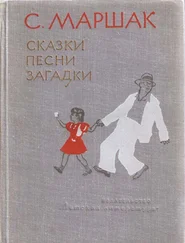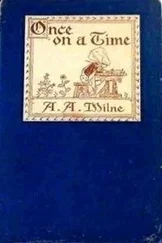Алан Милн - Once a Week
Здесь есть возможность читать онлайн «Алан Милн - Once a Week» весь текст электронной книги совершенно бесплатно (целиком полную версию без сокращений). В некоторых случаях можно слушать аудио, скачать через торрент в формате fb2 и присутствует краткое содержание. Год выпуска: 2014, Издательство: epubBooks Classics, Жанр: Юмористическая проза, на английском языке. Описание произведения, (предисловие) а так же отзывы посетителей доступны на портале библиотеки ЛибКат.
- Название:Once a Week
- Автор:
- Издательство:epubBooks Classics
- Жанр:
- Год:2014
- ISBN:нет данных
- Рейтинг книги:5 / 5. Голосов: 1
-
Избранное:Добавить в избранное
- Отзывы:
-
Ваша оценка:
- 100
- 1
- 2
- 3
- 4
- 5
Once a Week: краткое содержание, описание и аннотация
Предлагаем к чтению аннотацию, описание, краткое содержание или предисловие (зависит от того, что написал сам автор книги «Once a Week»). Если вы не нашли необходимую информацию о книге — напишите в комментариях, мы постараемся отыскать её.
Once a Week — читать онлайн бесплатно полную книгу (весь текст) целиком
Ниже представлен текст книги, разбитый по страницам. Система сохранения места последней прочитанной страницы, позволяет с удобством читать онлайн бесплатно книгу «Once a Week», без необходимости каждый раз заново искать на чём Вы остановились. Поставьте закладку, и сможете в любой момент перейти на страницу, на которой закончили чтение.
Интервал:
Закладка:
"Bless you, Marie. We shall be very poor, dear. Will you mind?"
"Not with you, Jack. At least, not if you mean what I mean by 'very poor.'"
"Two thousand a year."
"Yes, that's about what I meant."
Jack took her in his arms.
"And Mary Huggins can go and marry the Pope," he said, with a smile.
With a look of alarm in her eyes she pushed him suddenly away from her. There was a crash as his foot went through the front wheel of the bicycle.
"Mary Huggins?" she cried.
"Yes, I was left a fortune on condition that I married a person called Mary Huggins. Absurd! As though―"
"How much?"
"Oh, quite a lot if it wasn't for these confounded death duties. Five million pounds. You see―"
"Jack, Jack!" cried the girl. "Don't you understand? I am Mary Huggins."
He looked at her in amazement.
"You said your name was Marie Huguenot," he said slowly.
"My stage name, dear. Naturally I couldn't—I mean, one must—you know how particular managers are. When father died and I had to go on the stage for a living―"
"Marie, my darling!"
Mary rose and picked up her bicycle. The air had gone out of the back wheel again, and there were four spokes broken, but she did not heed it.
"You must write to your lawyer to–night," she said. " Won't he be surprised?"
But, being a great reader of the magazines, he wasn't.
The Statesman
On a certain night in the middle of the season all London was gathered in Lady Marchpane's drawing–room; all London, that is, which was worth knowing—a qualification which accounted for the absence of several million people who had never heard of Lady Marchpane. In one corner of the room an Ambassador, with a few ribbons across his chest, could have been seen chatting to the latest American Duchess; in another corner one of our largest Advertisers was exchanging epigrams with a titled Newspaper Proprietor. Famous Generals rubbed shoulders with Post–Impressionist Artists; Financiers whispered sweet nothings to Breeders of prize Poms; even an Actor–Manager might have been seen accepting an apology from a Royalty who had jostled him.
"Hallo," said Algy Lascelles, catching sight of the dignified figure of Rupert Meryton in the crowd; "how's William?"
A rare smile lit up Rupert's distinguished features. He was Under Secretary for Invasion Affairs, and "William" was Algy's pleasant way of referring to the Bill which he was now piloting through the House of Commons. It was a measure for doing something or other by means of a what–d'you–call–it—I cannot be more precise without precipitating a European Conflict.
"I think we shall get it through," said Rupert calmly.
"Lady Marchpane was talking about it just now. She's rather interested, you know."
Rupert's lips closed about his mouth in a firm line. He looked over Algy's head into the crowd. "Oh!" he said coldly.
It was barely ten years ago that young Meryton, just down from Oxford, had startled the political world by capturing the important seat of Cricklewood (E.) for the Tariffadicals—as, to avoid plunging the country into Civil War, I must call them. This was at a by–election, and the Liberatives had immediately dissolved, only to come into power after the General Election with an increased majority. Through the years that followed, Rupert Meryton, by his pertinacity in asking the Invasion Secretary questions which had been answered by him on the previous day, and by his regard for the dignity of the House, as shown in his invariable comment, "Come, come—not quite the gentleman," upon any display of bad manners opposite, established a clear right to a post in the subsequent Tariffadical Government. He had now been Under Secretary for two years, and in this Bill his first real chance had come.
"Oh, there you are, Mr. Meryton," said a voice. "Come and talk to me a moment." With a nod to a couple of Archbishops Lady Marchpane led the way to a little gallery whither the crowd had not penetrated. Priceless Correggios, Tintorettos, and G. K. Chestertons hung upon the walls, but it was not to show him these that she had come. Dropping into a wonderful old Chippendale chair, she motioned him to a Blundell–Maple opposite her, and looked at him with a curious smile.
"Well," she said, "about the Bill?"
Rupert's lips closed about his mouth in a firm line. (He was rather good at this.) Folding his arms, he gazed steadily into Lady Marchpane's still beautiful eyes.
"It will go through," he said. "Through all its stages," he added professionally.
"It must not go through," said Lady Marchpane gently.
Rupert could not repress a start, but he was master of himself again in a moment.
"I cannot add anything to my previous statement," he said.
"If it goes through," began Lady Marchpane―
"I must refer you," said Rupert, "to my answer of yesterday."
"Come, come, Mr. Meryton, what is the good of fencing with me? You know the position. Or shall I state it for you again?"
"I cannot believe you are serious."
"I am perfectly serious. There are reasons, financial reasons—and others—why I do not want this Bill to pass. In return for my silence upon a certain matter, you are going to prevent it passing. You know to what I refer. On the 4th of May last―"
"Stop!" cried Rupert hoarsely.
"On the 4th of May last," Lady Marchpane went on relentlessly, "you and I—in the absence of my husband abroad—had tea together at an A.B.C." (Rupert covered his face with his hands.) "I am no fonder of scandal than you are, but if you do not meet my wishes I shall certainly confess the truth to Marchpane."
"You will be ruined too!" said Rupert.
"My husband will forgive me and take me back." She paused significantly. "Will Marjorie Hale―" (Rupert covered his hands with his face)—"will the good Miss Hale forgive you? She is very strict, is she not? And rich? And rising young politicians want money more than scandal." She raised her head suddenly at the sound of footsteps. "Ah, Archbishop, I was just calling Mr. Meryton's attention to this wonderful Botticell―" (she looked at it more closely)―"this wonderful Dana Gibson. A beautiful piece of work, is it not?" The intruders passed on to the supper–room, and they were alone again.
"What am I to do?" said Rupert sullenly.
"The fate of the Bill is settled to–day week, when you make your big speech. You must speak against it. Confess frankly you were mistaken. It will be a close thing, anyhow. Your influence will turn the scale."
"It will ruin me politically."
"You will marry Marjorie Hale and be rich. No rich man is ever ruined politically. Or socially." She patted his hand gently. "You'll do it?"
He got up slowly. "You'll see next week," he said.
It is not meet that we should watch the unhappy Rupert through the long–drawn hours of the night, as he wrestled with the terrible problem. A moment's sudden madness on that May afternoon had brought him to the cross–roads. On the one hand, reputation, wealth, the girl that he loved; on the other, his own honour and—so, at least, he had said several times on the platform—the safety of England. He rose in the morning weary, but with his mind made up.
The Bill should go through!
Rupert Meryton was a speaker of a not unusual type. Although he provided the opinions himself, he always depended upon his secretary for the arguments with which to support them and the actual words in which to give them being. But on this occasion he felt that a special effort was required of him. He would show Lady Marchpane that the blackmail of yesterday had only roused him to a still greater effort on behalf of his country. He would write his own speech.
On the fateful night the House was crowded. It seemed that all the guests at Lady Marchpane's a week before were in the Distinguished Strangers' Gallery or behind the Ladies' Grille. From the Press Gallery "Our Special Word–painter" looked down upon the statesmen beneath him, his eagle eye ready to detect on the moment the Angry Flush, the Wince, or the Sudden Paling of enemy, the Grim Smile or the Lofty Calm of friend.
Читать дальшеИнтервал:
Закладка:
Похожие книги на «Once a Week»
Представляем Вашему вниманию похожие книги на «Once a Week» списком для выбора. Мы отобрали схожую по названию и смыслу литературу в надежде предоставить читателям больше вариантов отыскать новые, интересные, ещё непрочитанные произведения.
Обсуждение, отзывы о книге «Once a Week» и просто собственные мнения читателей. Оставьте ваши комментарии, напишите, что Вы думаете о произведении, его смысле или главных героях. Укажите что конкретно понравилось, а что нет, и почему Вы так считаете.












